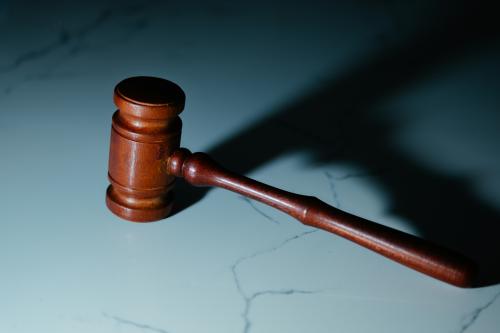Kentucky-based company resolves related SEC and DoJ actions
Highland Heights, Kentucky-based General Cable Corporation has agreed to pay a total of more than $75 million to settle SEC and US Department of Justice (DoJ) allegations that it violated the FCPA.
‘General Cable operated globally without the effective compliance programs and internal controls necessary to proactively address corruption risks and accounting errors,’ says Stephanie Avakian, acting director of the SEC’s enforcement division, in a statement.
The SEC and DoJ have in recent years become active in bringing FCPA cases, following a long period when there were few enforcements. As a result, many companies operating in parts of the world deemed to present higher risks of bribery and corruption have devoted considerable resources to ensure they comply with the act.
Wire and cable manufacturer General Cable has agreed to pay $51.2 million in disgorgement and $4.1 million in interest to resolve the alleged violations of the FCPA’s anti-bribery, books-and-records and internal accounting controls provisions. It does not admit or deny wrongdoing.
According to the SEC, General Cable’s subsidiaries between 2003 and 2015 made improper payments of roughly $19 million to foreign government officials in Angola, Thailand, China, Indonesia, Bangladesh and Egypt, generating illicit profits of more than $51 million on sales to state-owned enterprises (SOEs). General Cable made these payments directly to foreign government officials or through third-party agents or distributors – in the form of sales commissions, rebates, discounts and other fees – which passed on payments to foreign government officials in connection with SOE business, the SEC says in a related filing issued on December 29.
Some of these payments were made despite employees of General Cable’s subsidiaries informing executives and employees at General Cable that they suspected payments to third parties were being used for improper purposes, including potential bribery, the commission adds.
According to the agency, General Cable failed to require or ensure, among other things:
- Anti-corruption due diligence on the retention of third-party agents and distributors
- Proof that services had been rendered by third parties before payment could be made to them
- Oversight of the payment process to ensure payments were made pursuant to General Cable’s policies or contractual terms, or that payments were reasonable and legitimate.
The SEC says General Cable did not address these risks, which allowed the alleged conduct to continue, and its subsidiaries improperly recorded the alleged payments as legitimate business expenses on their books and records and financial statements, which were consolidated into General Cable’s financial statements.
During the period at issue, the agency says, General Cable had a code of ethics that prohibited its employees from offering or giving any person any payment that may be illegal or unethical, specifically prohibiting any consideration given to a public official, unless authorized by law, and referring to the applicability of the FCPA to the company and its employees. But General Cable did not provide adequate guidance or training on policies and procedures to ensure compliance with the FCPA and, as a result, a number of the company’s foreign subsidiaries lacked internal accounting controls for doing business with third-party entities on sales to government customers, the commission says.
In addition, the regulator alleges that despite signing compliance questionnaires detailing that they knew and understood the code of ethics, some General Cable employees generally were not aware the FCPA applied to their operations, and did not:
- Perform anti-corruption due diligence on third-party entities
- Obtain written contracts with third-party entities requiring their compliance with the FCPA
- Report to management transactions that raised corruption issues.
SELF-REPORTING
In determining the settlement agreement, the SEC considered General Cable’s self-reporting, substantial co-operation and remedial efforts, the agency says. The company promptly self-reported potential FCPA violations to the agency in January 2014, after it retained outside counsel to conduct an internal investigation, and self-reported other potentially improper payments as its investigation progressed, according to the SEC.
General Cable also provided detailed presentations on the key findings of the investigations, and promptly produced all relevant documents and information, chronologies, key document binders, interview downloads and forensic accounting analyses, the agency says.
As part of its remediation, General Cable has terminated or taken disciplinary action against employees who were involved in the alleged improper payments, according to the commission. It adds that the company has restructured its compliance policies and programs by appointing a chief compliance officer who reports directly to the company’s CEO and audit committee. It has, among other things, enhanced its training of sales and accounting personnel on compliance policies and expectations and implemented regular reviews of third-party relationships and accounting adjustments, the SEC says.
As part of the settlement, the company has agreed to co-operate fully with the commission in any and all investigations, litigation or other proceedings relating to or arising from the administrative proceeding. Among other things, the SEC says, General Cable will undertake reviews to monitor and assess whether its policies and procedures are reasonably designed to detect and prevent violations of the FCPA.
DOJ
At the same time, General Cable has entered into a related non-prosecution agreement (NPA) with the DoJ, as part of which it agrees to: pay a $20.5 million penalty, continue to co-operate with the department in any investigations relating to the alleged conduct, enhance its compliance program and report on the implementation of its enhanced compliance program.
The department reached this resolution based on a number of factors, including that General Cable voluntarily and in a timely fashion disclosed the alleged conduct at issue, fully co-operated in the investigation and fully remediated, the DoJ says in a statement. Based on its actions and other considerations, the company received an NPA and an aggregate discount of 50 percent off the bottom of the US sentencing guidelines fine range, officials say.
‘This resolution demonstrates the very real upside to coming in and co-operating with federal prosecutors and investigators. It also reflects our ongoing commitment to transparency,’ says assistant attorney general Leslie Caldwell of the DoJ’s criminal division in a statement on the settlement.
Michael McDonnell, General Cable president and CEO, says: ‘We are pleased to have reached an agreement with the DoJ and SEC regarding these matters. General Cable is committed to conducting our business ethically and with the utmost integrity and, over the past two years, we have invested significant time and resources to implement a world-class compliance program.
‘At the same time, we have transformed our business strategy under an entirely refreshed strategic leadership team committed to maintaining a strong performance and compliance culture. We are a different and better company today as a result of these actions.’









